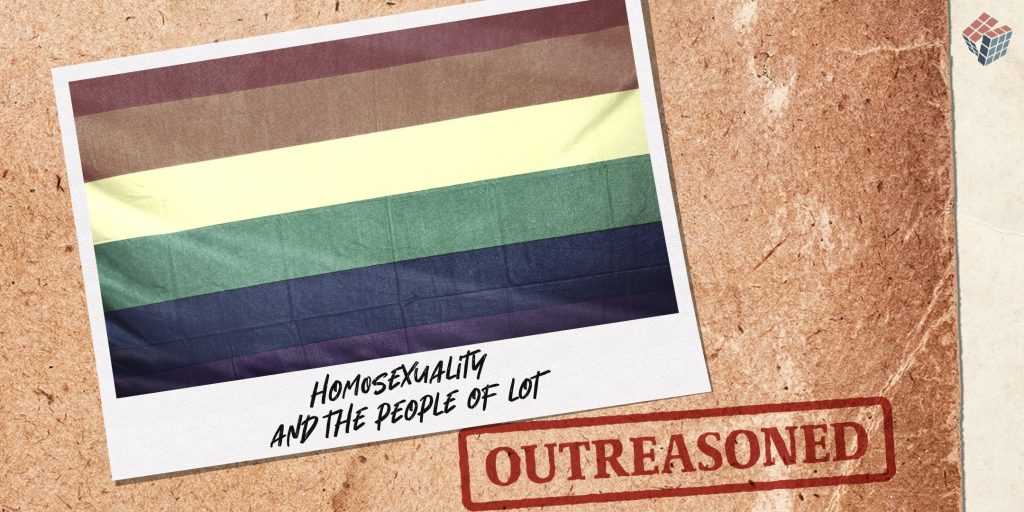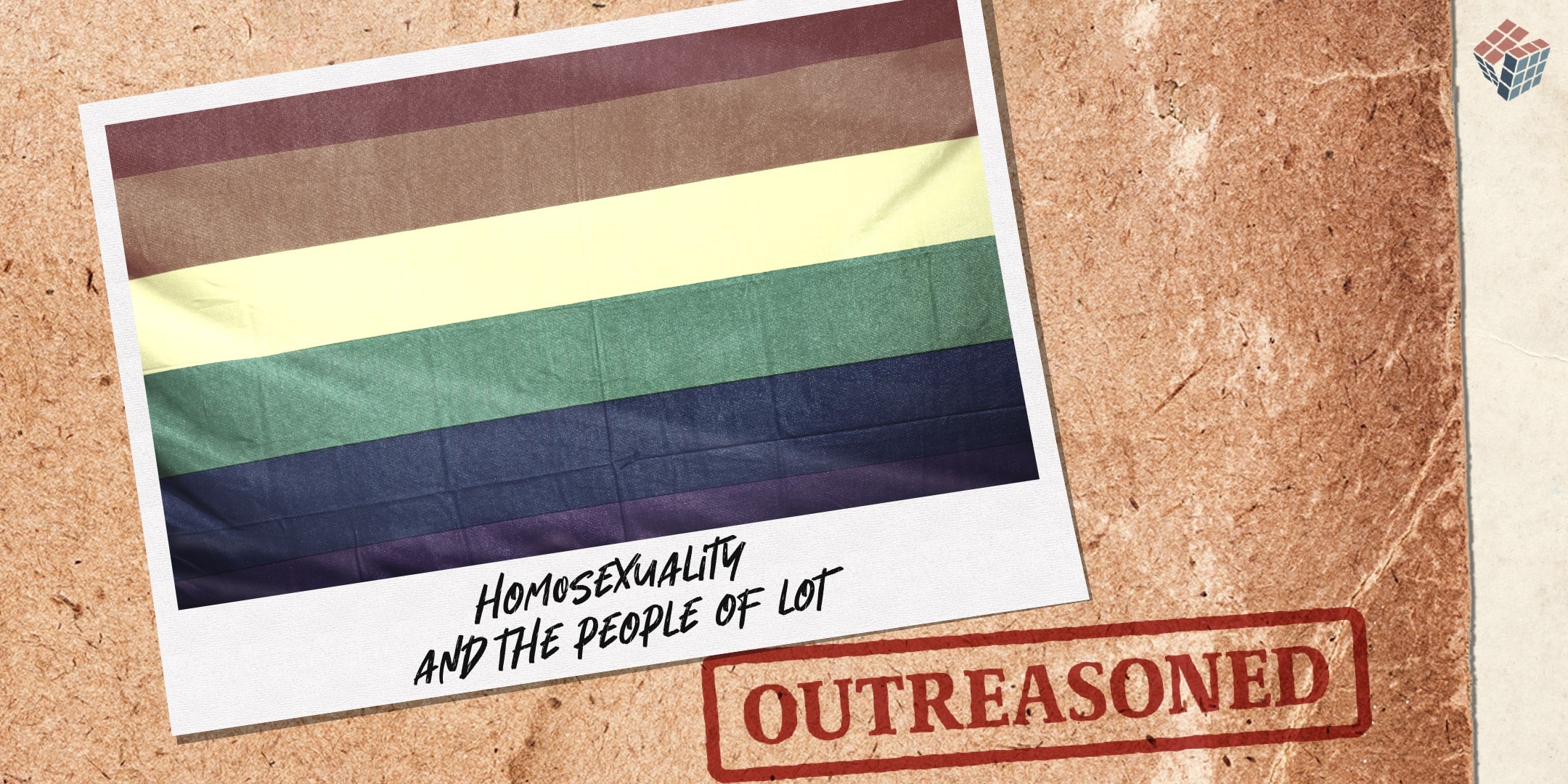
This criticism advanced here has several aspects. It is summed up in the following statements Sohail makes:
- Why does God punish people for homosexuality according to Islam, if there is a cure for it? Why doesn’t He just reveal the cure?
- If there is no cure, then why does God punish people for it?
- Did God commit “genocide” in wiping out the People of Lot?
- Why does the Quran encourage gay individuals to marry; how can this be regarded as a solution to the problem?
Refutation
Let’s go through his points, one by one.
Why does God punish people for homosexuality according to Islam, if there is a cure for it? Why doesn’t He just reveal the cure?
This statement misrepresents the Islamic position on homosexuality. Islam regards homosexuality as a sin, in the same way consumption of alcohol is regarded as sinful. That doesn’t mean gay people won’t be granted paradise. That doesn’t mean God will throw all gay people in hell. That doesn’t mean it is a “disease”.
All it means is that homosexuality is a misuse of the faculty of lust and sexual desire, according to Islamic teachings. That is, after all, the Islamic definition of sin: the misuse of a God-given faculty.
Indeed, when one ponders the matter carefully, one will realise that if one believes in God, and accepts that sin is as defined above, then it is impossible, regardless of one’s religion to not believe homosexuality is a sin. Whether one approaches it from a religious or evolutionary standpoint, it stands proven that the primary purpose of the sexual faculty is reproduction. After all, what other reason is it that universally, women find tall, well-built men more attractive than short and stumpy men, if it is not related to the reproductive advantage such men offer the women for her offspring, and for the protection of her and her offspring during the postnatal phase? What reason is it that men find well-breasted women attractive if it does not relate to the function of breastfeeding? One could go on.
Does sex have other benefits? Yes, of course. Namely companionship, comfort, enjoyment and pleasure. However, these are secondary to the primary purpose of reproduction. How do we know this? Because the only reason sex is enjoyable, from any reasonable perspective, is to incentivise reproduction. Thus, the pleasure and comfort derived from sex is secondary to its reproductive purpose. This is a self-evident truth.
As such, how can it be possible to believe that while God has given us this faculty for this purpose, and that sin is defined as the misuse of a faculty, and that homosexuality is an expression of sexual desire in such a way as can never lead to reproduction, and yet homosexuality is not sinful. Such a position is logically untenable for anyone, regardless of their religion, unless they change the basic definition of sin. To do so would require the entire destruction of the philosophy of right and wrong in Islam, and indeed, in any religion.
As such, complaining that homosexuality is regarded as sinful only reveals a lack of understanding of both Islam and evolutionary science.
If there is no cure, then why does God punish people for it?
Firstly, according to a wealth of scientific research over the last 60 years on homosexuality, bisexuality and transgenderism, summarised nicely on www.scienceoflgbt.com, homosexuality is not a predetermined sexual orientation, nor is heterosexuality.
As for whether homosexual individuals can transition to a heterosexual orientation is a matter of scientific study – not popular outrage. It is undoubtedly true that efforts by some religious organisations, have resulted in harm to people’s psychological condition, in attempting to “convert” them from homosexuality to heterosexuality. Nevertheless, it is also undoubtedly true that sexual orientation, whether straight or gay, is not as fixed and predetermined as imagined or portrayed by some. Indeed, many individuals transition between sexual orientations spontaneously anyway. Around 3% of heterosexual individuals adults over the course of their lifetime transition towards homosexuality, with around 15-30% of male homosexual adults transitioning to heterosexuality over the course of their lifetimes. Among the youth, the USA ADD-Health study showed that only 10.3% of boys aged 16 who exclusively experience homosexual romantic attraction, continued to feel exclusively homosexually romantically attracted by 17 years of age. As regards sexual behaviour, of those males aged 16 years of age who had solely engaged in homosexual sexual behaviour, by 17 years of age, 61% of them engaged solely in heterosexual sexual behaviour. The same longitudinal study showed that the majority of 17 years old males who experience homosexual attraction, no longer do so at 21 years of age. We refer the reader to the article “Can Sexual Orientation Change?” in the above website also for further details.
As such, the question of there being a “cure” is misplaced. Some individuals transition, some do not. Some might seek counselling and support in their transition – whichever direction they may be moving in – from family, friends or indeed, from a therapist. There is no magic pill or drug to take. Forced or pressurised conversion is, of course, heinous and should be shunned and rooted out. That gay individuals can and do shift from a homosexual to a bisexual/heterosexual orientation, in the same way that some heterosexual individuals transition to a homosexual orientation, however, is scientific fact. That many LGBTQ activists find this an uncomfortable reality, and seek to white-wash these individuals as never having been truly gay – many of whom may have had gay relationships for decades, and who regarded themselves as “exclusively homosexual” – is irrelevant.
Finally, from a theological position, just because someone feels compelled to act in a particular way, does not make the act any less sinful, though it may certainly make the act – in God’s eyes – more forgivable. Many people are more prone than others to acts of anger, verbal abuse and violence on account of childhood traumas or personality differences. Many there are who feel compelled to carry out acts of theft as a compunction. Does their feeling compelled mitigate the sinfulness of their acts? In reality, whether there is a “cure” for homosexuality is irrelevant to the religious position from the framework of morality. If homosexuality is a burden upon the individual, then there are other burdens others face in respect of other human faculties. It is one among many.
Did God commit “genocide” in wiping out the People of Lot?
Genocide is defined as the systematic extermination of a people by a person or group of people. Genocide is a crime against humanity because one human being has no right to end the life of another. God, however, is not a person, nor is He a group of people. God is the One who brought all humans into being, and who sustains their life at every moment through the ecosystem He created. The One who creates and sustains life is indeed the only one who has the right to destroy it.
It is peculiar that many of those who baulk at the notion of God taking a life are in favour of human beings having the right to take their own lives through euthanasia. God creates and sustains existence, while humans neither created themselves nor ultimately, can they sustain their lives without God’s mercy. If there was no rain, how could humans survive?
As such, only God has the right to take life. He is the Being who has brought all into existence, and who causes the death of all creatures. If one is going to take exception to the destruction of the People of Lot, why stop there? What of the Ediacaran Extinction some 542 million years ago? How dare God have wiped out so many millions and billions of acritarchs? What of the daily death toll God enacts upon humanity itself – 151,600 people die each day? The description of God’s action as genocide is therefore absurd.
The Quran describes the People of Lot as practising an amalgamation of multiple sins, particularly highway robbery, homosexuality and public displays of gross indecency (Quran 29:30). Ultimately, the Quran says, they were destroyed because they sought to throw the Prophet Lot out of his home for his speaking against their crimes:
But the answer of his people was naught save that they said, ‘Drive out Lot’s family from your city. They are a people who would keep clean.’
Quran 27:57
They had forbidden him from preaching his message through their prohibition against his entertaining or hosting travellers (Quran 15:71), worried that his teaching, including his condemnation of them, was spreading far and wide. The limit of their opposition to Lot reached its limit when they deigned it acceptable to exile him and his family for the crime of propagating his Divinely-appointed mission.
Why does the Quran encourage gay individuals to marry?
The Quran nowhere encourages or commands gay individuals to marry. It hints at the possibility that lesbians in particular have a propensity of changing their sexual orientation and that if they do so, towards men, then they should be permitted to marry. That lesbians have relatively high rates of switching to heterosexuality is well established. In fact, some have argued that the Quran in fact recognises the existence of non-heterosexual men and women. Indeed, the hadith literature contain evidence of effeminate Muslim men (“Mukhannathun”) at the time, in Medina. The Prophet of Islam did not force any of them to marry.
Editor’s Note: In the initial publication of this article, it was stated that as regards the USA ADD-Health study, the homosexual ‘identity’ was shown to shift from homosexual to heterosexual. This was technically incorrect, as the initial study referred to “romantic attraction” and not to “identity.” As such, the article has been amended for the purposes of scientific accuracy. In addition, reference to a study that discussed rates of success and failure for individuals seeking to transition their sexual orientation was removed, in recognition of the varied and nuanced evidence that exists in the literature, and the necessity for a fuller treatment of the subject, not suited to the current article.


